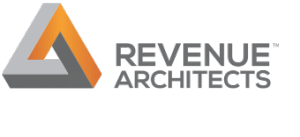
The focus for Revenue Operations is aligning and optimizing revenue-generating functions to achieve business objectives. This strategic function helps align and optimize the activities of sales, marketing, and customer success teams to drive revenue growth.
RevOps professionals foster collaboration, communication, and alignment to optimize revenue performance and customer lifecycle management. They facilitate regular meetings, share insights, and drive cross-functional initiatives to enhance revenue operations.
Roles and responsibilities cut across the Revenue Architecture dimensions and include three primary functions:
Revenue Strategy Alignment:
- Organize stakeholders to set revenue targets, KPIs, and metrics
- Ensure alignment around target markets, segments, ideal customer profiles, and personas and support and ensure value propositions and messaging align and enable marketing and selling.
- Align go-to-market strategies, and establish processes for full-funnel revenue generation and optimization. Leverage data insights to inform revenue strategies, identify market trends, and contribute to strategic decision-making.
Revenue Platform Alignment
- Collaborate with Marketing teams to ensure the brand platform, including naming, visual design, websites, social and digital channels, and collateral, are in place to enable revenue success.
- Ensure the technology stack supports full-funnel revenue objectives. Evaluate, select, and manage the revtech stack, including sales, marketing, and customer success technologies, including data governance and management, CRM, marketing automation, business intelligence, and analytics tools.
- Reporting and Analytics: Analyze sales, marketing, and customer success data and create and maintain dashboards, reports, and analytics tools to track key performance metrics, measure revenue outcomes, and provide actionable insights to sales and marketing leaders.
- Training & Enablement: Training and enablement of sales, marketing, and customer success teams. Provide training on tools and systems, share best practices, and ensure teams have the skills and knowledge necessary to execute revenue strategies effectively.
- Sales Enablement: Enable sales teams by managing the sales processes, coordinating forecasting, sales analytics, territory planning, and sales enablement to ensure sales teams have the necessary tools, systems, and resources.
- Marketing Enablement: Align marketing efforts with revenue goals and support lead generation and customer acquisition programs.
- Customer Impact Enablement: Optimize customer success processes to ensure customer retention and expansion. Help customer success teams develop and implement customer success strategies, manage customer data and analytics, and provide insights to improve customer onboarding, adoption, and satisfaction.
- Process Optimization and Continuous Improvement: RevOps teams focus on streamlining and improving processes to drive efficiency and effectiveness across revenue operations. They identify bottlenecks, develop and document best practices, implement process automation, and drive process improvements to enhance productivity, reduce friction, and accelerate revenue growth.
The core focus is on aligning and optimizing revenue-generating functions to achieve business objectives.
By implementing a RevOps strategy, businesses can expect to achieve a 10-20% increase in sales productivity, a significant increase in marketing ROI, and faster revenue growth compared to those that don’t. DevOps enables organizations to create a unified, data-driven, and customer-centric approach for more accelerated, predictable, and sustainable revenue growth.










